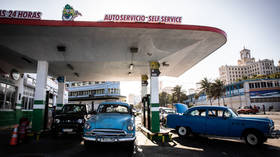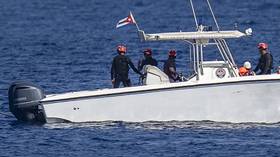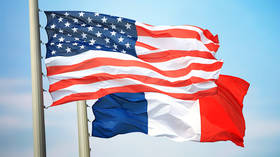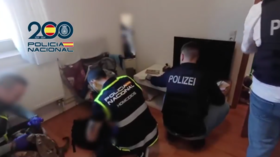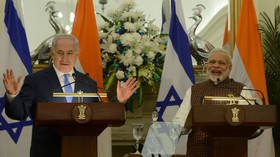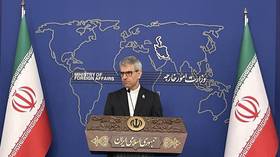Medvedev might run for second term if plans work
Russian President Dmitry Medvedev has announced that he may run in the 2012 presidential elections.
Speaking at a meeting with business and scientific circles in Stanford University on Thursday, he declared: “If the plans I formulated start implementing, if I have the support of our people… and if I have the desire to continue, then I do not rule this out.”
Medvedev stressed that the people’s support was a key factor “for any politician,” especially for one who may run for a second term. “It’s hard work to be a president,” he noted. “If someone is starting this job saying he is ready to work two or three terms, it might be that he is not fully prepared for this position,” Medvedev said.
Russia’s current president succeeded Vladimir Putin, who is now the prime minister, in 2008. Recent surveys show that if both politicians run, they have almost equal chances of becoming president in 2012.
Russia will continue to improve its political and legal system, Medvedev said at Stanford. Increasing the prestige of courts and establishing a working legal system which the people trust are among president’s most important tasks, he said. But the president added that Russia will be improving the political system on its own “without rebukes from abroad.”
At the same time, Medvedev stressed, Russia would be “a predictable international partner with a transparent and understandable foreign policy.” A firm approach in defending the country’s interests should be combined with “openness and readiness for compromises with those cooperating with us on the principles of equality and respect for international law,” he said.
Russia’s foreign policy should also ensure conditions to answer new challenges, using modern technological opportunities, the president noted. “Any resentment, including previous resentment, is a way to self-isolation,” he added.
Speaking about uneasy relations with Tbilisi, Medvedev said they might improve when Georgia gets a new leader. The Russian president described current relations between the two countries as “dramatically poor,” adding that he wanted them to return back to normal.
Moreover, Medvedev is sure this would happen, but he does not see “any chances for it with the incumbent president [Mikhail Saakashvili].” “As soon as Georgia gets a new leader we will have every opportunity to restore relations,” stated Medvedev. Russians and Georgians “lived together for centuries,” he added, noting that the two peoples were citizens of the same state for a long time.
Commenting later on Medvedev’s statements, Georgia's Foreign Minister Grigol Vashadze said “the Russian leadership will never like presidents of Georgia whoever occupies this position.” Since 1991, when Georgia proclaimed independence, “there has been no leadership in Georgia that could satisfy Russia,” Vashadze told journalists on Thursday. Georgia’s status as an independent country is “intolerable for Russia,” he said. And Georgia will never have authorities that do not defend “principles of independence, freedom and territorial integrity,” the minister noted.
Fact box
South Ossetia declared its independence from Georgia in 1990. In response, the Georgian authorities abolished the republic's autonomy. After the breakup of the Soviet Union, the Abkhazians fought a war for independence against Georgia in 1992-1993. After Georgia's aggression against South Ossetia in August 2008, Russia recognized Abkhazia and South Ossetia as independent states.
Meanwhile, Medvedev himself repeatedly stated the opposite. Even in November 2008, after the tragic events in South Ossetia, he once again said that “Russia recognizes Georgia’s territorial integrity, taking into account the independence of Abkhazia and South Ossetia.” This position has been recently confirmed by Russia’s Foreign Minister Sergey Lavrov. In January 2010 he said that Moscow “fully recognizes and respects Georgia’s territorial integrity within the borders established by Saakashvili himself, without South Ossetia and Abkhazia.” After his aggression against South Ossetia, it was not Russia’s initiative to sever diplomatic relations with Georgia, the minister stressed.Drastic political changes in Georgia are not expected any time soon. The next presidential election (in which Saakashvili has repeatedly stated that he is not planning to take part) should take place in 2013.
Sergey Borisov, RT


